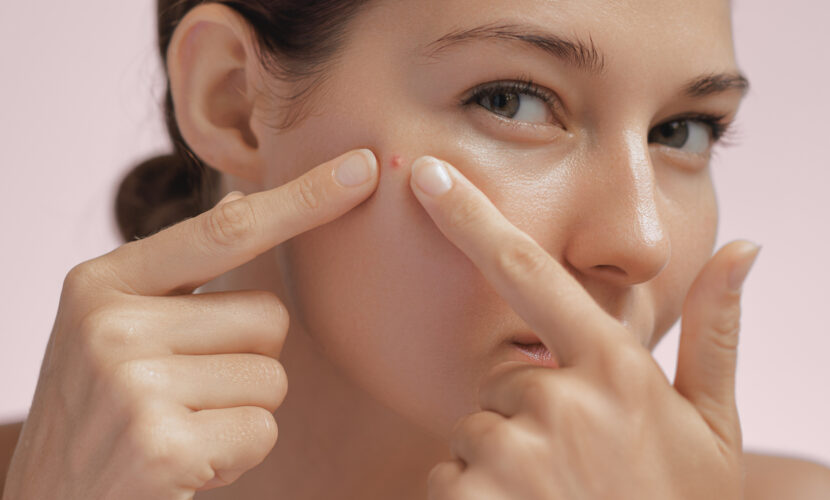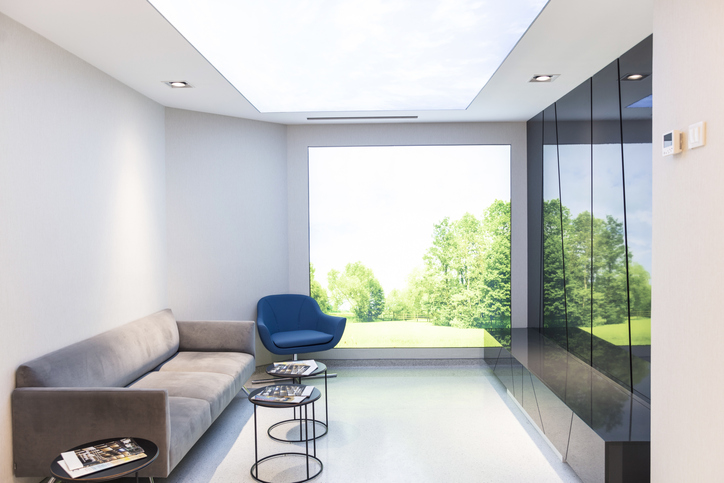For many people who suffer from acne scars, the question "Will acne scars ever go away?" is a very serious question for many people suffering from acne scars. In fact, when one hears that acne scars will remain forever, the effects are not only visually but also emotionally devastating. If we can alleviate some of this anxiety and learn effective countermeasures, we can improve the quality of our daily lives.
Here, we will explain in detail the causes and realities of acne scars, as well as effective care methods and approaches of cosmetic medicine. We hope that through the information here, we can help you to relieve your concerns about your skin and live each day with confidence.

Graduated from the Faculty of Medicine, National Kumamoto University. After serving as the director of major beauty clinics in Japan, etc., he opened Aladdin Aesthetic Clinic in 2023. He is a professional in aesthetic medicine with a doctorate in anti-aging research and many years of experience. With the motto of "Toward the realization of cosmetic medicine without lies," he aims to be the "Only One" together with his patients.
Is it true that acne scars never go away?

There are several complex factors behind acne scars that will never go away. Understanding these factors will make it easier to find appropriate care and treatment. Below we will take a closer look at the mechanisms and factors affecting acne scars.
Acne occurs when the pores become clogged with dead skin cells and sebum excessively secreted by the sebaceous glands. This clogging causes acne bacteria to proliferate in the skin, leading to inflammation. This phenomenon, which is particularly common during puberty and times of severe hormonal imbalance, is concentrated in the T-zone and U-zone, where the sebaceous glands are active. As the inflammation progresses, the pimple becomes red and swollen, and if it worsens further, it may be accompanied by pus.
As acne worsens and inflammation reaches the deeper dermal layer, skin tissue is damaged. In the process of repairing this damage, collagen is produced. Collagen is essential for skin regeneration, but excessive collagen production can cause problems. Excessive collagen production causes uneven skin surfaces (crater-like acne scars) and hyperpigmentation (red and brown spots). These are so-called "acne scars.
Acne scars that disappear spontaneously and acne scars that do not disappear
The natural disappearance of acne scars depends on several factors. Pigmentation due to mild inflammation often fades naturally in a few months through skin turnover (metabolism). However, in cases of severe inflammation or damage that reaches the dermis layer, acne scars can remain for life. In particular, repeated strong inflammation can cause scars to remain because the skin's ability to regenerate cannot keep up with the inflammation.
Young skin has a high regenerative capacity and acne scars tend to heal relatively quickly. However, as we age, the skin's regenerative capacity declines and acne scars become more difficult to erase. The skin turnover cycle is approximately 28 days when young, but as we age, this cycle slows down and can take 45 days or more. This delays the repair of acne scars and increases the likelihood that they will remain for life.
In addition, skin type varies from person to person because it includes a genetic component. Oily or combination skin tends to be more prone to acne outbreaks and to leave scars. Dry and sensitive skin, on the other hand, often has acne scars without inflammation, and hyperpigmentation may be the main problem.
Types of acne scars
Acne scars are classified into three main types
- pigmentation
These are red or brown spots that remain after the inflammation has subsided. This is caused by excessive production of melanin pigment. Mild cases may fade naturally in a few months, while severe cases may remain for a long period of time. - Unevenness (Acnescar)
Cratering irregularities are the result of damage to the dermal layer. They are caused by irregular collagen production and are difficult to disappear spontaneously. Specialized treatment is often necessary. - Hypertrophic scar (keloid)
Acne scars may remain in a raised shape. This is caused by excessive collagen production and is seen especially in those who are constitutionally prone to keloid formation.
Skin's ability to regenerate and the effects of aging
The skin's ability to regenerate is a very important factor in maintaining skin health. When young, this regenerative capacity is very high, and skin turnover (metabolism) occurs in a short period of time, approximately 28 days. This is the cycle in which epidermal cells are renewed and old keratin is naturally shed. The faster this cycle is, the more quickly skin damage and acne scars are repaired relatively quickly, and acne scars are less noticeable in young skin.
However, as we age, this turnover cycle gradually slows down: in our 30s, it takes about 35 days; in our 40s, about 40 days; and in our 50s, it can take 45 days or more. This delay allows dead skin cells to remain on the skin surface longer, and new cells take longer to appear on the surface. This is one reason why acne scar repair is delayed and more likely to remain for life.
With aging, collagen production decreases as well as the skin's ability to regenerate. Collagen is important for skin elasticity and firmness, and plays a role in maintaining the skin's youthfulness. However, with age, collagen production decreases and the skin becomes thinner and less elastic.
Collagen is abundant in the dermis layer of the skin and plays a role in supporting the skin structure. When we are young, collagen production is active and the skin's ability to repair itself is high, so acne scars heal relatively quickly. However, as collagen production declines with age, the skin's ability to repair itself also declines, and acne scars become more noticeable.
In addition, collagen loss makes the skin thinner and more vulnerable to external stimuli. This makes inflammation and damage more likely to become more severe, resulting in acne scars.
Yet another change that accompanies aging is a decline in sebum secretion. When we are young, sebum secretion is active and the skin barrier function works well. However, as we age, sebum secretion declines and the skin becomes drier. Dry skin has a reduced barrier function and is more susceptible to external stimulation and damage. This can make acne scar repair even more difficult.
Can't handle commercial care products?
Over-the-counter skin care products may be effective for mild acne scars, but have limitations for severe acne scars. Over-the-counter care products are primarily intended to care for the epidermis and rarely extend to the dermal layer.
Products with vitamin C or retinol as ingredients may provide temporary improvement, but deeper acne scars may require a cosmetic medical approach.
Effective self-care methods for acne scars

Daily skin care is important for improving acne scars. A proper skin care routine can improve the condition of the skin and prevent acne scars from worsening.
| Skin Care Steps | Important Points |
|---|---|
| cleansing | Non-irritating cleansers. Oil-based is effective. |
| moisturizer | Moisturizers containing ceramide and hyaluronic acid. |
| UV Countermeasures | Sunscreen with high SPF value. Hats and parasols to protect against UV rays. |
Cleansing is the basic step to remove makeup and dirt from the skin. It is important to use a non-irritating cleanser for skin with acne scars. Oil-based cleansers can remove makeup thoroughly while still retaining the necessary oils in the skin.
Moisturizing is also essential for strengthening the skin's barrier function and promoting skin regeneration. Dry skin is more susceptible to damage and acne scars are more visible. Moisturizers containing ceramide and hyaluronic acid can be used to enhance the skin's ability to retain moisture.
UV protection is important to prevent hyperpigmentation of acne scars. UV rays can damage the skin and cause acne scars to darken further; use a sunscreen with a high SPF value daily and use a hat or parasol to protect against UV rays when going outside.
Ingredients to be used and their effects
The key to effective self-care is to choose skin care products that contain ingredients effective in improving acne scars.
| component | effect |
|---|---|
| vitamin C | Antioxidant action. Improves pigmentation. |
| retinol | Promotes turnover. Aids in collagen production. |
| niacinamide | Strengthens barrier function. Reduction of inflammation. |
Vitamin C has antioxidant properties and improves skin pigmentation. Incorporating vitamin C-based serums and creams into daily skin care regimens can be expected to lighten the color of acne scars.
Retinol is an ingredient that promotes skin turnover and aids in collagen production. This improves the appearance of uneven acne scars and restores skin elasticity. It is important to use products containing retinol for nighttime skin care and to use good UV protection during the day.
Niacinamide strengthens the skin's barrier function and reduces inflammation. It is an effective ingredient for relieving redness and inflammation of acne scars and is often found in moisturizing creams and serums.
Approaches to acne scars from the standpoint of cosmetic medicine and their effects

Various laser treatments are effective in improving acne scars. This section details the typical types of laser treatments and other cosmetic skin treatments and their effects.
fractional laser
Fractional laser stimulates skin regeneration by applying the laser in the form of microdots, which create tiny holes in the epidermis. This treatment generates skin resurfacing, which regenerates new skin from old skin, by intentionally causing thermal damage deep within the skin.
Collagen production is promoted, skin elasticity and firmness are increased, and improvement of acne scars and pores can be expected. It improves various skin problems such as wrinkles and sagging skin in a short period of time, and also features short downtime.
YAG laser (Erbium YAG laser)
The Erbium YAG laser has 10 times higher moisture absorption than the CO2 laser. It delicately transpires the target tissue and produces almost no coagulation layer, resulting in less thermal damage to the surrounding tissue and reducing the risk of hyperpigmentation and the period of redness after the procedure. Wounds heal quickly, treatment can be performed without the use of anesthesia, and downtime is short, making it an easy treatment to continue.
picolaser
Picolaser is a treatment that irradiates a laser beam in an extremely short period of time, called "picoseconds (one trillionth of a second). There are three types of irradiation modes: "picotoning," "picospot," and "picofractional." The treatment can be tailored to the condition of acne scars, working on the stratum corneum of the skin to remove pigmentation of acne scars.
Multiple treatments are required, but gradual improvement can be achieved, and the high power laser can also be used to pinpoint and effectively remove hyperpigmentation.
Ruby laser (Q-switched ruby laser)
The Q-switched ruby laser is a laser treatment device suitable for treating spots, freckles, and birthmarks. It approaches only the melanin pigment and destroys the pigment with pinpoint accuracy without damaging the surrounding tissue. This makes it effective in improving spots, freckles, and birthmarks. This laser is effective not only for spots, but also for various pigmentations such as acne scars.
dermapen
Dermapen is a treatment that uses an ultrafine needle, even finer than a hair, to temporarily create tiny holes in the skin's surface, thereby enhancing the skin's self-healing ability. This process promotes the production of collagen and elastin, thereby restoring skin firmness and elasticity. It is also effective in improving acne scars, pore size, sagging pores, and fine wrinkles caused by hyperpigmentation. Furthermore, by introducing active ingredients at the same time, a skin tightening effect can be expected.
The Dermapen 4 can adjust the needle length from 0.2 mm to 3.0 mm in 0.1 mm increments. This allows the depth of the needle to be adjusted appropriately to the area and skin layer to be stimulated, from the keratin to the epidermis and dermis. The length of the Dermapen4 needle is optimized according to the area and symptoms to be treated. In particular, the 3.0mm needle reaches deeper into the skin than the conventional Dermapen to achieve higher efficacy.
chemical peeling
Chemical peels are treatments in which acidic agents are applied to the skin to remove dead skin cells and promote skin regeneration. The main acids used include glycolic acid, lactic acid, and salicylic acid. These acids promote skin turnover and improve the pigmentation and unevenness of acne scars. In addition, new skin appears after peeling, resulting in a smoother texture and brighter skin.
The major advantage of chemical peels is that they are non-invasive yet highly effective. Downtime is relatively short, and the treatment can be performed without disrupting daily activities. In addition, regular chemical peels can even out skin tone and improve overall skin health.
How to deal with acne scars?

In order to maintain beautiful skin while dealing with acne scars, it is important to review your daily life, take mental care of yourself, and have a long-term perspective on your care plan. Here, specific advice is explained in detail.
Review of daily life
Skin health is greatly influenced by the rhythm of daily life. A regular lifestyle helps maintain normal skin turnover (metabolism) and promotes acne scar repair. Sleep is especially important, and it is recommended to ensure 7-8 hours of quality sleep every day. Since skin is regenerated during sleep, lack of sleep reduces the skin's ability to repair itself, making acne scars more visible.
Importance of a balanced diet
Diet also has a significant impact on skin health. A diet rich in vitamins and minerals can improve the skin's ability to repair itself. Vitamins A, C, and E, in particular, are antioxidants and essential for skin health. Consume green and yellow vegetables, fruits, and nuts.
Importance of Mental Care
When suffering from acne scars, it is easy to have low self-esteem. Stress has a negative effect on the skin, so affirming yourself and having a positive attitude will lead to healthier skin. It is a good idea to make a habit of praising yourself in your daily life. Recognizing small successes and efforts and valuing yourself will improve your mental health.
Long-term care planning
Improvement of acne scars requires a long-term perspective. Ongoing maintenance is important, not just one-time treatments or short-term care. Regular skin care and cosmetic treatments can be incorporated to keep the skin in good condition.
To develop a long-term care plan, it is effective to seek professional advice. In particular, consult a dermatologist to have a care plan professionally developed for your skin. Regular check-ups will help you to accurately assess the condition of your skin and ensure that you continue to take optimal care of it.
summary
Many people fear that acne scars will never go away, but with proper care and treatment, significant improvement can be expected. The self-care methods and cosmetic medicine approaches described here provide the best measures for each skin condition. Because treatment involves risks, it is important to continue proper care under the guidance of a specialist. It is important to maintain skin health from a long-term perspective while dealing with acne scars.
Finally, take good care of yourself and your skin, and reevaluate your daily routine to feel more confident. We hope this guide will help you take the first step toward regaining your beautiful skin.
At Aladdin Aesthetic Clinic, based on our many years of experience in cosmetic medicine and cosmetic dermatology and the knowledge of our doctoral degree, we provide counseling that aims to be "only one", offering the best treatment for each person we meet. We offer only the necessary treatments without any unnecessary information or suggestions.
Feel free to use our official LINE account for 24-hour counseling and reservations. Please feel free to contact us for free counseling for the first time or if you have any concerns.






